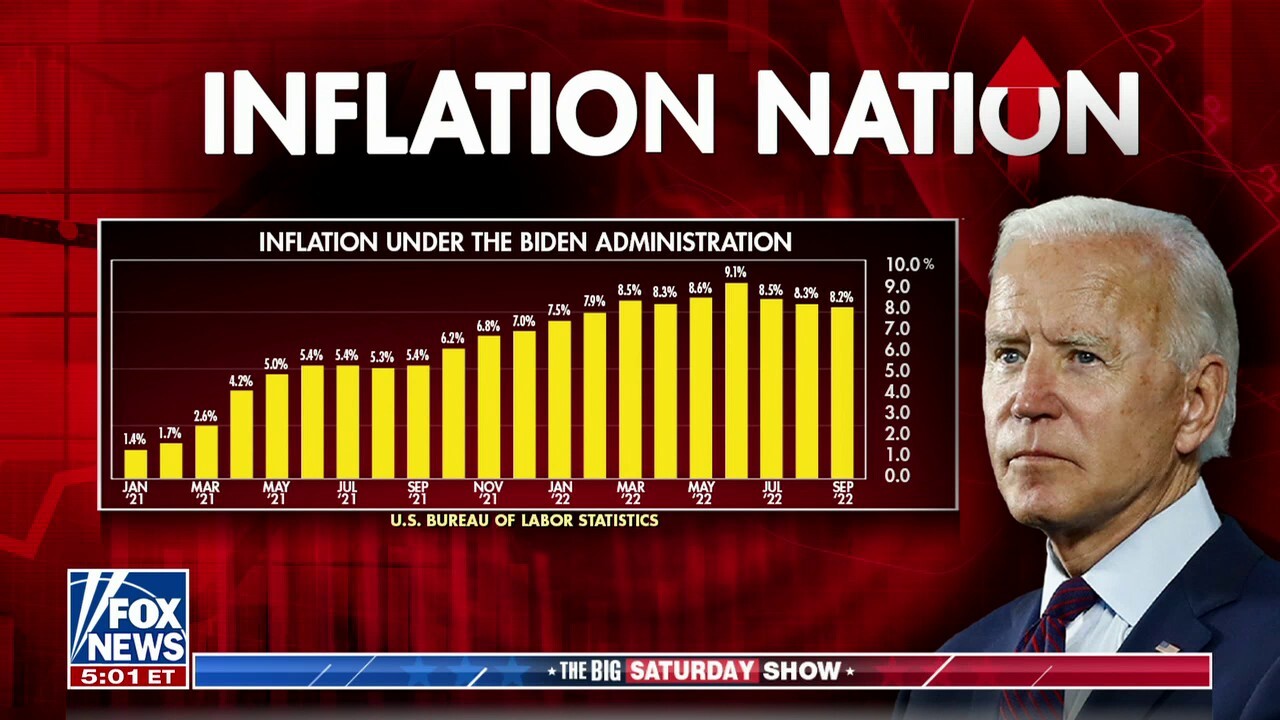Meta's Future Under A Trump Administration: Zuckerberg's Challenges

Table of Contents
Increased Regulatory Scrutiny and Antitrust Actions
A Trump administration's approach to tech regulation could differ significantly from previous administrations. This section analyzes the potential for increased antitrust actions and stricter data privacy regulations.
Reviving Antitrust Investigations
A renewed focus on antitrust issues is a strong possibility. Previous investigations into Meta's acquisitions of Instagram and WhatsApp could be reignited, potentially leading to:
- Break-up scenarios: The Department of Justice (DOJ) and the Federal Trade Commission (FTC) might pursue the forced divestiture of Instagram or WhatsApp, fundamentally altering Meta's business model and market dominance. This would necessitate significant restructuring and could negatively impact user experience and growth.
- Increased scrutiny of future acquisitions: Meta's ability to acquire smaller companies and integrate them into its ecosystem could be significantly hampered, limiting its innovation and expansion capabilities.
- Significant financial penalties: Even if a full break-up is not pursued, hefty fines and penalties for anti-competitive practices are highly likely.
Data Privacy and Regulation
While bipartisan support for stronger data privacy legislation exists, a Trump administration's approach might differ in its implementation and enforcement. This could lead to:
- Weakening of existing regulations: The administration might weaken or attempt to overturn existing data privacy regulations, creating loopholes that benefit large tech companies like Meta but potentially harming user privacy.
- Increased legal challenges to data collection practices: Meta's extensive data collection practices could face renewed scrutiny and legal challenges, potentially resulting in limitations on its advertising business.
- Substantial fines and penalties: Non-compliance with even less stringent regulations could result in significant financial penalties, impacting Meta's profitability.
Content Moderation and Section 230
Section 230 of the Communications Decency Act provides legal protection to online platforms from liability for user-generated content. A Trump administration might seek to:
- Reform or repeal Section 230: This could expose Meta to significantly greater liability for content posted on its platforms, increasing legal costs and potentially altering its content moderation policies.
- Increased political pressure to censor or deplatform: Meta might face increased pressure to deplatform individuals or groups deemed objectionable by the administration, creating a difficult balancing act between free speech and combating misinformation.
- Heightened scrutiny of content moderation algorithms: The algorithms used by Meta to moderate content might be subjected to greater scrutiny, potentially leading to demands for greater transparency and accountability.
Political Pressure and Public Relations Challenges
Meta's size and influence make it a frequent target for political criticism. A Trump administration could exacerbate these challenges.
Navigating a Polarized Political Climate
Maintaining a neutral stance in a highly polarized environment will be incredibly challenging. Meta may face:
- Criticism from both the left and the right: Balancing competing demands and avoiding accusations of bias will require sophisticated political navigation.
- Damage to brand reputation: Negative political narratives could harm Meta's brand image and erode public trust.
- Targeted boycotts and campaigns: Consumers and activists might launch boycotts or other campaigns to pressure Meta to align with their political views.
Dealing with Political Interference and Censorship Accusations
Accusations of political bias or censorship from the Trump administration or its supporters are a significant risk:
- International repercussions: These accusations could strain Meta's relationships with foreign governments and negatively impact its international operations.
- Legal challenges: Meta might face legal challenges related to allegations of censorship or political interference.
- Damage to user trust: Accusations of bias or censorship could erode user trust and lead to decreased engagement.
Impact on User Behavior and Advertising Revenue
The political and regulatory climate under a Trump administration could significantly impact Meta's user base and its primary revenue stream: advertising.
Changes in User Engagement
Political events and regulatory changes could lead to:
- Decreased user engagement: Users might reduce their time on Meta's platforms in response to political controversies or perceived censorship.
- Shifts in user demographics: Certain user segments might migrate to alternative platforms.
- Reduced advertising reach: Changes in user behavior could negatively impact the reach and effectiveness of Meta's advertising products.
Advertising Revenue and Economic Uncertainty
A Trump administration might bring economic uncertainty, impacting Meta's bottom line:
- Reduced advertising spending: Businesses might cut their advertising budgets during times of economic uncertainty.
- Decreased investor confidence: Political and regulatory uncertainty could negatively impact investor confidence and Meta's stock price.
- Need for diversification: Meta might be forced to diversify its revenue streams beyond advertising to mitigate risk.
Conclusion: Meta's Future Under a Trump Administration: Preparing for the Uncertain
Meta faces significant challenges under a potential Trump administration, including increased regulatory scrutiny, intense political pressure, and potential impacts on user trust and advertising revenue. Understanding and preparing for these challenges is crucial. The potential for antitrust actions, stricter data privacy regulations, changes to Section 230, and the ongoing need to navigate a highly polarized political climate will significantly shape Meta's future. Staying informed about developments regarding Meta's future under a Trump administration is essential for investors, users, and policymakers alike. Continue to follow the news and analysis to stay informed about this evolving situation. Subscribe to our newsletter for updates on "Meta's Future Under a Trump Administration" and other critical tech policy developments.

Featured Posts
-
 Gambling On Catastrophe The Case Of The Los Angeles Wildfires
Apr 26, 2025
Gambling On Catastrophe The Case Of The Los Angeles Wildfires
Apr 26, 2025 -
 Emerging Markets Fund Closure Point72 Traders Depart After Pod Shutdown
Apr 26, 2025
Emerging Markets Fund Closure Point72 Traders Depart After Pod Shutdown
Apr 26, 2025 -
 Speed King Merlier Wins Two Stages At Paris Nice
Apr 26, 2025
Speed King Merlier Wins Two Stages At Paris Nice
Apr 26, 2025 -
 Order I Ll Have What Shes Having By Chelsea Handler Online Today
Apr 26, 2025
Order I Ll Have What Shes Having By Chelsea Handler Online Today
Apr 26, 2025 -
 Gavin Newsoms Podcast A Political Risk Charlie Kirks Concerns
Apr 26, 2025
Gavin Newsoms Podcast A Political Risk Charlie Kirks Concerns
Apr 26, 2025
Latest Posts
-
 Trumps Presidency A Deep Dive Into Day 109 May 8th 2025
May 10, 2025
Trumps Presidency A Deep Dive Into Day 109 May 8th 2025
May 10, 2025 -
 High Potential Episode Count Season 2 Renewal Information And Return Date
May 10, 2025
High Potential Episode Count Season 2 Renewal Information And Return Date
May 10, 2025 -
 High Potential Season 1 Underrated Characters Season 2 Fate
May 10, 2025
High Potential Season 1 Underrated Characters Season 2 Fate
May 10, 2025 -
 Revealed The Actor Playing David In High Potential Episode 13 And The Casting Choices Significance
May 10, 2025
Revealed The Actor Playing David In High Potential Episode 13 And The Casting Choices Significance
May 10, 2025 -
 Could This Show Spoil Romans Fate In Show Name Season 2 Streaming Info Included
May 10, 2025
Could This Show Spoil Romans Fate In Show Name Season 2 Streaming Info Included
May 10, 2025
